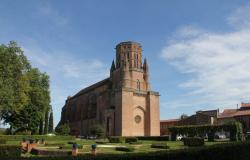In the Meuse, the forest-timber sector represents a key sector of the local economy, with 575 establishments and nearly 1,870 jobs. Faced with the challenges of climate change, the department is banking on this resource for its sustainable development and ecological transition.
The Meuse is distinguished by its significant forest cover, made up of 90% deciduous trees. This forest, mainly public (69%), constitutes a major asset for the department. It is home to a great diversity of species, from beech on the limestone plateaus to oaks in the Woëvre plain, including precious hardwoods such as ash and maples.
A dynamic and varied economic fabric
The Meuse wood sector has 463 companies, the majority of which (68.5%) comes from forestry activity. Although 75% of these structures have no employees, the sector has seen growth of 10% in a decade, demonstrating its dynamism. The sector employs 1,870 employees, or 4% of the department's workforce, a figure greater than the weight of the Meuse in regional employment.
Activities are mainly divided between silviculture and logging (28% of the workforce), wood construction (22%) and sawing and woodworking (17%). Companies like Petitjean in Etain or Collinet Sièges in Baudignécourt illustrate the positioning of the Meuse in niche or high-end markets.
A strong commitment to the ecological transition
Faced with climate challenges, the Meuse Department adopted an ambitious Transition Plan in 2022, aiming to reduce its carbon footprint by 40% by 2030. In this context, a “2023-2030 Tree Plan” provides for the planting of 30,000 trees on departmental properties, as well as increased support for local stakeholders for their planting projects.
This plan is structured around three axes: increasing the departmental tree heritage, supporting municipalities in their revegetation projects, and supporting agroforestry to help farmers adapt to climate change.
A major issue for the future of the territory
The Meuse forest-timber sector is thus at the heart of the department's sustainable development strategies. It represents not only an important economic sector, but also an essential lever for achieving ecological transition objectives. By promoting this local resource, the Meuse is resolutely committed to a greener future.






